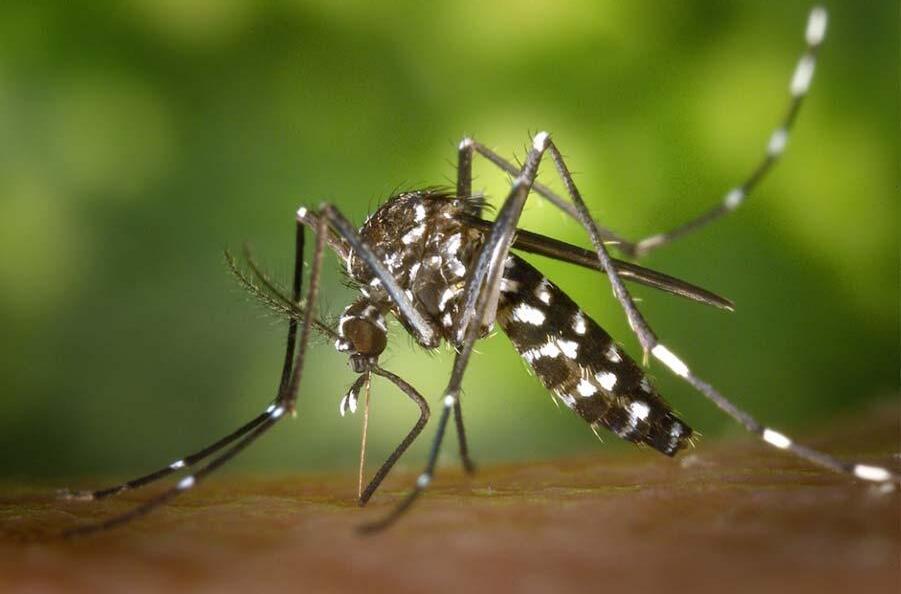
3 minute read
surveillance for dengue, chikungunya and zika
Port of Spain, Trinidad and Tobago. 24 January, 2023. The Caribbean Public Health Agency (CARPHA) is reminding the public that arboviral diseases such as dengue, chikungunya and Zika are still circulating in the Caribbean region. In light of this, CARPHA emphasizes the importance of prevention and control measures to reduce the transmission of these viruses.
Executive Director, Dr. Joy St. John gave the assurance that CARPHA remains committed to strengthening public health systems for early detection and response to the emergence, reemergence, and spread of arboviral infections. She said, “The CARPHA Medical Microbiology Laboratory (CMML) has the capacity and remains ready to test and provide diagnostic confirmation of suspected cases in the Region” However, she stated, “Member States must maintain a strategic approach to surveillance and sample collection and submission to increase our chances of early identification of infections”. At the same time, Dr. St. John is also encouraging persons to eliminate potential mosquito breeding sites in and around their homes.
Advertisement
Given the increase in regional and international travel to the Caribbean and the presence of the Aedes aegypti mosquitoes, which are endemic to this Region and transmit dengue, chikungunya and Zika, CARPHA is urging its Member States to strengthen routine surveillance for undifferentiated fever in their communities.
CARPHA said it is also critical for Ministries of Health to continue public education campaigns to remind people of the importance of keeping their surroundings free of mosquito breeding sites and avoiding mosquito bites. This involves keeping water drums and barrels tightly covered, and throwing out stagnant water from flower vases, old tyres, and other containers.
Dengue, chikungunya and Zika are associated with moderate to severe health consequences, with young children and/or older age groups at higher risk. Symptoms of Zika include rash, fever, muscle and joint pain, and conjunctivitis. Zika has been confirmed as a cause of congenital abnormalities in neonates of women infected with Zika virus during pregnancy and is also a trigger of Guillain-Barré Syndrome. Symptoms of dengue include rash, fever, muscle and joint pain, and nausea, while chikungunya may cause similar symptoms with muscle and joint pain persisting for an extended period.
Shortening supply chains and trying to produce or procure more active ingredients locally, in addition to relying on go-to countries such as India and China, could also strengthen supply and make it easier to increase production in times of additional need. This has the added benefit of reducing pharmaceutical companies' carbon footprints and limiting their exposure to macroeconomic challenges. While generics manufacturers and partners can work on any aspects of the above unilaterally, new multi-stakeholder models are increasingly being explored. One example is Civica Rx, a purpose-driven US non-profit drug company founded in 2018 with an explicit objective of preventing drug shortages. Civica has relied on its extensive provider consortium covering 1/3 of US hospital beds, and prolific partnership building with medical suppliers, such as AmerisourceBergen, Sandoz and Hikma, as well as the US Federal Government and state governments.
A concept known as Public Benefit Corporations (PBCs) has also emerged. US-based company Phlow, for example, has partnered with other companies, such as Fresenius Kabi, and the public sector, such as HHS/ASPR/BARDA, to secure the supply of essential medicines. And Mark Cuban's Cost Plus Drugs has partnered with providers and Pharmacy Benefits Managers (PBMs). Some have theorised that the PBC model could allow pharma to ensure greater access while still meeting business objectives. On the retail and eCommerce side, non-traditional disruptors, such as the recently launched Amazon RxPass and Walmart prescriptions, are also worth keeping an eye on for potential impacts on the ecosystem. These developments may hint at potentially promising innovative approaches for addressing shortages. Stakeholders across pharma, healthcare providers, governments and others can seek new ways to work together to ensure a more reliable, sustainable medicine supply that ensures resilience and equitable access. These ideas warrant further exploration by leaders across regions.
China should be honest on Covid origin, says US envoy
28 February 2023 - BBC News
The US envoy to China has called on the country to be "more honest" about the origins of the Covid-19 virus.
His comments come a day after US media reported that a federal agency had found the pandemic probably started from a laboratory leak in Wuhan.
The Department of Energy reportedly concluded with "low confidence" that the virus was accidentally leaked.
China's foreign ministry hit back, saying Covid's origin "was about science and should not be politicised" Washington-Beijing ties have been under strain since the US shot down an alleged Chinese spy balloon this month.
Ambassador Nicholas Burns told a US Chamber of Commerce event on Monday that China needs to "be more honest about what happened three years ago in Wuhan with the origin of the Covid-19 crisis".
The energy department had formerly said it was undecided on how the virus began.
Other US agencies have drawn differing conclusions, with varying degrees of confidence in their findings. The FBI in 2021 concluded with "moderate confidence" that the virus leaked from a lab.
Other studies suggest it made the leap from animals to humans at Wuhan's Huanan seafood and wildlife market.
An unclassified report released by the US top spy official in October 2021 said that four US intelligence agencies had assessed with "low confidence" that it had originated with an infected animal or a related virus.
White House national security spokesman John Kirby said on Monday there was still no firm finding either way.
"There has not been a definitive conclusion and consensus in the US government on the origins of the Covid-19 pandemic," he told reporters when asked about the energy department's reported determination.







